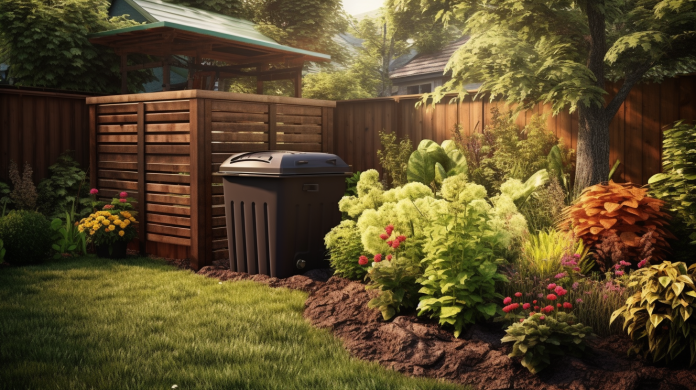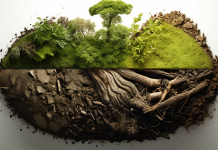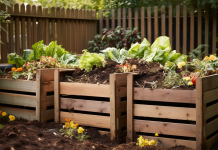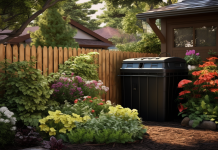In this article, we will explore the numerous benefits of composting and guide you through the process of creating your own nutrient-rich compost.
Understanding the Benefits of Composting
While composting may seem like a simple practice, it offers a multitude of benefits for both the environment and gardeners. One of the key benefits of composting is soil enrichment. Compost is rich in organic matter, which improves soil structure, fertility, and moisture retention. It enhances the nutrient content of the soil, providing essential elements for plant growth and reducing the need for synthetic fertilizers.
Additionally, composting plays a crucial role in waste reduction. By diverting organic waste from landfills, composting reduces the production of greenhouse gases such as methane. It also decreases the need for chemical fertilizers and pesticides, which can have harmful effects on the environment and human health.
Choosing the Right Composting Method for You
It is important to carefully consider which composting method best suits your needs and preferences.
When composting in urban spaces, it is essential to choose a method that is space-efficient and odor-free.
One option is vermicomposting, which uses worms to break down organic waste into nutrient-rich compost. This method is suitable for small spaces and can be done indoors.
Another option is aerobic composting, which requires the use of a compost bin or pile and involves regularly turning the materials to ensure proper aeration. This method is ideal for larger outdoor spaces.
Setting Up Your Compost Bin or Pile
Here are three important steps to consider:
Composting bin placement:
- Choose a location that receives adequate sunlight and is easily accessible.
- Ensure the area is level and has good drainage.
- Avoid placing the bin directly on grass or soil to prevent pests from burrowing into the compost.
Compost bin maintenance:
- Regularly turn the compost pile to aerate it and accelerate the decomposition process.
- Monitor the moisture level and adjust as necessary.
- Keep a balance between green and brown materials to maintain a healthy composting environment.
- Remember to exclude diseased plants from the pile.
What to Compost: The Essential Ingredients
Whether you are composting with worms or composting in small spaces, the key ingredients remain the same.
The first essential ingredient is green waste, which includes fruit and vegetable scraps, grass clippings, and coffee grounds. These materials provide nitrogen, which helps speed up the decomposition process.
The second essential ingredient is brown waste, such as leaves, straw, and wood chips. Brown waste provides carbon, which helps balance the nitrogen-rich green waste. Additionally, you can add small amounts of shredded newspaper or cardboard to provide additional carbon.
Maintaining Your Compost: Turning, Watering, and Troubleshooting
Regularly tending to your compost by turning it, watering it, and troubleshooting any issues is crucial for maintaining a healthy and efficient composting process. Here are three key steps to help you optimize your composting process:
- Turning: Turning your compost pile regularly helps to aerate it, allowing oxygen to reach the microorganisms that break down the organic matter. Use a pitchfork or compost turning tool to mix the outer and inner layers of the pile, promoting decomposition and preventing odors.
- Watering: Ensure that your compost pile is consistently moist, similar to a damp sponge. Dry compost slows the decomposition process, while overly wet compost can become smelly and anaerobic. Water the pile regularly, especially during dry periods, to maintain the ideal moisture level.
- Troubleshooting: Pay attention to any issues that may arise in your compost pile, such as unpleasant odors, pests, or slow decomposition. Adjust the carbon-to-nitrogen ratio, add more brown materials for odors, and monitor moisture levels to troubleshoot and rectify any problems.
Composting Do's and Don'ts: Common Mistakes to Avoid
Here are some common composting mistakes to avoid:
| Common Mistakes | Troubleshooting Tips |
|---|---|
| Adding meat or dairy products | Stick to plant-based materials to prevent odor and pests |
| Neglecting to turn the compost pile | Regularly turning the pile helps with aeration and decomposition |
| Adding too much moisture | Maintain a balance by adding dry materials or covering the pile |
| Using diseased or pest-infested plant material | Avoid introducing pathogens or pests into the compost |
| Adding too many woody materials | Break down woody items before adding them to the pile for faster decomposition |
Harvesting and Using Your Finished Compost
Here are three ways to make the most of your compost:
- Using compost in container gardening: Incorporating compost into your container gardens can provide essential nutrients for your plants, improving their growth and overall health. Simply mix the compost with potting soil or use it as a top dressing to nourish your plants throughout the growing season.
- Composting for urban dwellers: Composting is not just for those with large outdoor spaces. Urban dwellers can join in too by using small-scale composting methods such as vermicomposting or bokashi composting. These methods allow you to compost kitchen scraps and other organic waste indoors, making it a convenient and sustainable option for city dwellers.
- Mulching with compost: Spread a layer of compost around your garden beds to act as a natural mulch. This will help retain moisture, suppress weeds, and improve the soil structure over time.
Taking Your Sustainable Gardening to the Next Level With Compost Tea
Compost tea is a liquid fertilizer made from steeping compost in water. It is a natural and organic way to improve soil fertility and maximize plant growth.
Compost tea contains beneficial microorganisms, nutrients, and enzymes that can be easily absorbed by plants. When applied to the soil or sprayed onto plant foliage, it helps to promote healthy root development, increase nutrient uptake, and improve overall plant vigor.
Compost tea also helps to suppress diseases and pests, reducing the need for chemical pesticides. By using compost tea in your sustainable gardening practices, you can ensure that your plants receive the necessary nutrients and support for optimal growth and productivity.
Key Takeaways
- Composting reduces the need for chemical fertilizers and improves soil structure and moisture retention.
- Choosing the right composting method is important, considering needs, preferences, and space availability.
- Setting up a compost bin or pile requires proper location, regular turning, and monitoring of moisture levels.
- Composting requires a balance between green and brown waste, with shredded newspaper or cardboard as additional carbon sources.
Conclusion
In conclusion, composting is a sustainable gardening practice that offers numerous benefits.
Proper maintenance, avoiding common mistakes, and harvesting finished compost can further enhance the composting process.
Take your sustainable gardening to the next level can be achieved by utilizing compost tea.
Incorporating composting into gardening practices can contribute to a more environmentally friendly and thriving garden ecosystem.
Please see our supporting article:
Compost Bins Versus Piles: The Right Method



